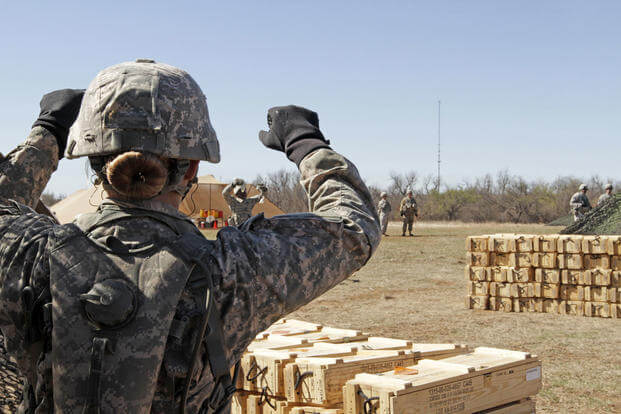The controversial proposal to have women register for Selective Service has gone nowhere in Congress thus far and now has been referred to a commission for more study.
“We have appointed a commission to look at this,” Rep. Mac Thornberry (R-Tex.), chairman of the House Armed Services Committee, said in response to a question on the status of women and the draft Monday at a Brookings Institution forum.
“We’ll see what they have to say,” Thornberry said, but he gave no timeline for the study to be completed and no indication whether Congress would be prepared to act when the commission files a report.
“The message is we need to step back and assess” whether the Selective Service system was needed at all in the era of the all-volunteer force before deciding whether to have women register, Thornberry said.
The draft ended on Jan. 27, 1973, as the Vietnam war was winding down but the Selective Service System remained in place. Currently, women do not have to register for the draft but men between the ages of 18-26 are required to.
In the past, opponents of having women register have pointed to a 1981 Supreme Court decision ruling that women were exempt from the draft since they did not serve on the front lines. The issue came into play again when former Defense Secretary Ashton Carter in late 2015 directed that all combat positions in the military be opened to women.
Last year, with the support of President Barack Obama, the Senate voted 85-13 to include a provision in the National Defense Authorization Act to lift the draft exemption for women, but the provision was removed in the House.
At the time, the Senate Armed Services Committee said that Carter’s lifting of the combat exclusionary rule for women had removed any justification for limiting draft registration to men.
Sen. John McCain (R-Ariz.), the SASC chairman, said, “The fact is every single leader in this country, both men and women, members of the military leadership, believe that it’s fair since we opened up all aspects of the military to women that they would also be registering for Selective Services.”
The position of President Donald Trump on women and the draft was unclear. Trump’s website on issues during the presidential election campaign last year did not address the draft.
At a town hall meeting in Virginia last October, Trump was asked by a veteran about the “social engineering” in the military that the veteran claimed had opened up combat roles to women and the possibility that women would have to register for the draft.
Trump did not respond directly but said "Well, we're going to get away from political correctness, and we are going to have to do that. We have a politically correct military, and it's getting more and more politically correct every day.”
Last year, Rep. Duncan Hunter (R-Calif.) and then-Rep. Ryan Zinke (R-Mont.), now the Interior Secretary in the Trump cabinet, half-heartedly offered a bill to “amend the Military Selective Service Act to extend the registration and conscription requirements of the Selective Service System, currently applicable only to men between the ages of 18 and 26, to women between those ages to reflect the opening of combat arms Military Occupational Specialties to women.”
Hunter, a Major in the Marine reserves and a veteran of Iraq and Afghanistan, and Zinke, a retired Navy SEAL Commander who served in Iraq, both said they were opposed to their own bill but argued that a debate in Congress was necessary on lifting the combat exclusion rule for women.
-- Richard Sisk can be reached at Richard.Sisk@Military.com.





























